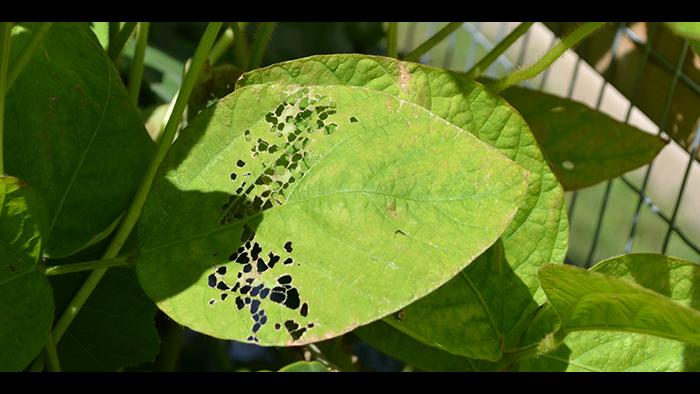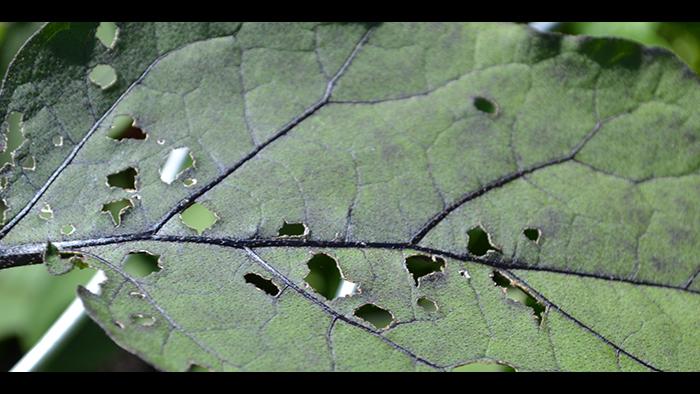Battling Bugs
Our organic vegetable garden looks great; eggplants, tomatoes, and peppers are growing alongside kale, sunflowers, and zucchini.
Upon closer inspection, though, you’ll find some damage being done by insects even though the crops themselves are healthy.
Battling bugs in an organic garden is quite labor intensive since we do not use pesticides to get rid of these insects. While we have the option of using Bacillus thuringiensis, a natural and safe microbial pesticide, it is used as a last resort.
The main way Jeanne Nolan and The Organic Gardener workers deal with bugs is handpicking them from crops and either squishing them or dropping them in a bowl of soapy water.
While I’ve adjusted to handpicking cabbage worms from crops, today was the first day I had to deal with a Japanese beetle (a WTTW co-worker told me last Friday she had removed one from the eggplant).
“Japanese beetles usually come around now, mid-July,” Jeanne Nolan said. “There’s about a month where they are intense and then they go away.”
Without Nolan or any of The Organic Gardener crew members present, I knew I had to remove the beetle; this job called for garden gloves. Fortunately after removing the one Japanese beetle, I did not see any others on the zucchini or on the Japanese eggplant.
However, Japanese beetles aren’t the only insects doing damage in the garden. Cabbage worms and cabbage loopers have been munching on Brussels sprouts and two of the three varieties of kale in our garden. For some reason, these insects are not as interested in the green curly kale as they are the red Russian kale and Dino/Tuscan kale, with the latter appearing to be their preferred variety given the amount of damage to it.
I didn’t find any loopers or worms on the kale or Brussels sprouts, but that could be due to the Bacillus thuringiensis that was applied to the garden Friday, July 18.
“It’s a last resort,” Adrienne Detanico said. “We’re hoping we won’t have to use it again.”










